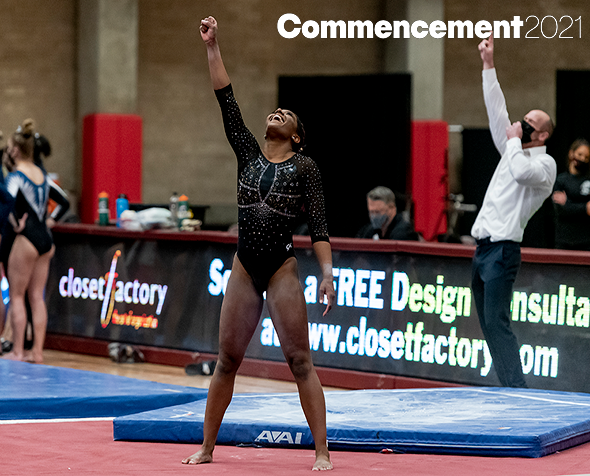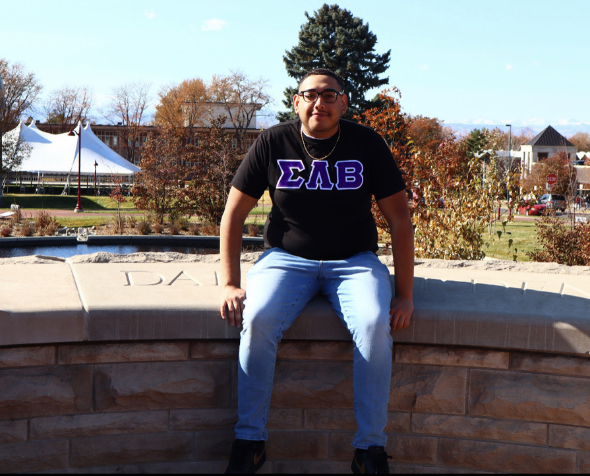Successful First-Gen Mentorship Program Plans For Expansion

First-generation students can find the process of navigating academic and social networks isolating and scary.
“As the first in my family to attend a four-year university, there were times in my academic career when I had to struggle to figure out simple and complex matters on my own. When you get to college, it’s difficult to pinpoint and access the resources necessary for success, this is often due to fear of reaching out or appearing unprepared,” says Anahi Quezada-Villa, a first-gen student who’s served as both a mentor and mentee in the College of Arts, Humanities & Social Sciences’ (CAHSS) First-Gen Mentorship Program.
By facilitating access to economic systems, professional networks and social capital, the CAHSS First-Gen Mentorship Program seeks to support first-gen students and address the inequities that often emerge for these students. Created by Associate Professor of History Elizabeth Escobedo, the program launched during the 2020–2021 academic year and offered mentorship and support to eight first-gen students.
“When I saw a general announcement about the program, I knew right away that I wanted to be a part of it,” says Assistant Professor Michael Gibson-Light, a faculty mentor in the program. “I was the first person from my household to go to college, and I remember how challenging that was at times. A couple of my professors were instrumental in demystifying the experience by helping me to navigate the university system and adjust to student life. Having the opportunity to extend that same sort of help now that I'm the one in the faculty position — and having the institutional support to do so — has been very rewarding.”
At its core, the program matches first-generation students with peer and faculty mentors. These relationships offer students the opportunity to discuss the concerns or challenges they face as first-generation college students and to gain support, direction and connectivity from their mentors. The peer mentors support fellow students while gaining valuable mentoring skills, and the faculty, staff and alumni mentors, many of whom are first-gen themselves, help create stable networks that students can rely on beyond their time at the University of Denver.
These networks are essential, says Quezada-Villa: “This program has connected me with the mentors and resources that have helped answer my questions, resolve my concerns and give me a sense of belonging. Additionally, I have found a way to give back to my community by acting as a mentor to a fellow first-generation student.”
Beyond the networks and connections offered by the mentor-mentee relationship, the First-Gen Mentorship Program has provided virtual programming, including an event on “First-Gen Strengths and Successes” and a partnership with first-gen law students at Sturm College of Law for those interested in learning more about law school.
In the 2021–2022 academic year, with additional donor funding, the DEI Committee plans to expand these offerings, including involving first-gen alumni who can help support students with career networking and employment.
“In the long term, the program hopes to support junior and senior first-gen students with paid internship experiences for the summer months, either at the workplace of their alumni mentor or at another institution, and to include parents of first-gen students in events,” says Escobedo.
For Gibson-Light, the creation and continued support of the First-Gen Mentorship Program shows DU’s commitment to using valuable resources toward creating a more equitable learning environment. Additionally, Gibson-Light recognizes the teaching benefits afforded by the program.
“Participating in the program has really highlighted areas in which I want to continue to improve my own teaching and mentoring. As much as I look back on my own student experiences to inform how I lead a class, it's almost more valuable for me to see DU through the eyes of my mentee. While many of the challenges faced by first-gen and working-class students are fairly universal, other things evolve over time. So, they've helped me ensure that my perceptions of student experiences stay up-to-date, in a sense, which has made me a more effective and attentive educator.”
For both Quezada-Villa and Gibson-Light, they hope more students, staff and faculty members will consider joining this program and offering essential support for first-gen students across the College.
“Students considering becoming mentees shouldn’t be afraid to reach out because I know that everyone involved in this program sincerely cares about and is invested in first-generation students’ success,” Quezada-Villa says. “I hope to see many of the future students succeed and achieve all their academic and career goals as the first in their families through the help of this program.”





